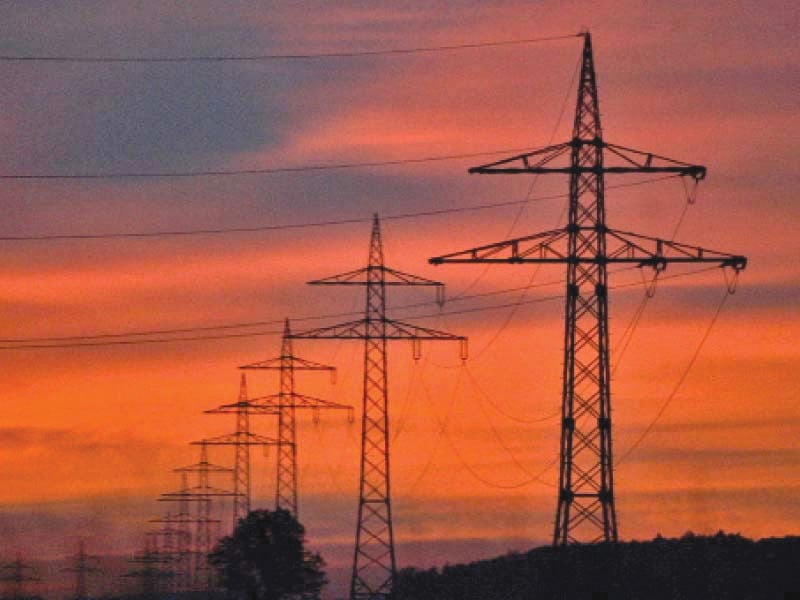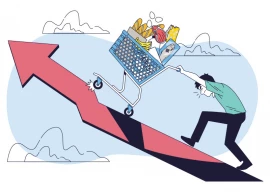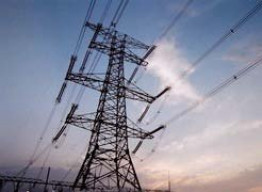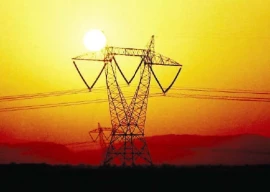
The persistent inefficiencies in power distribution companies, coupled with governance issues, have been identified as the primary drivers behind a staggering addition of Rs396 billion to Pakistan’s circular debt during the financial year 2022-23. According to the Industry Report 2022-23 released by the National Electric Power Regulatory Authority (Nepra), substantial losses and a decline in the recovery of electricity bills have exacerbated the circular debt crisis.
Nepra has recommended a forensic audit to enforce accountability within the staff, fostering transparency and efficiency in the distribution network. The report highlights that most Distribution Companies (DISCOs) failed to meet Transmission and Distribution (T&D) loss targets, significantly burdening the circular debt.
Entities such as Peshawar Electric Supply Company (PESCO), Tribal Electric Supply Company (TESCO), and Sukkur Electric Power Company (SEPCO) have reported notable losses, contributing a substantial Rs160.49 billion to the circular debt. PESCO alone has added Rs77.35 billion to the debt, showcasing the severity of the issue.
In detail, PESCO contributed Rs77.3 billion, Lahore Electric Supply Company (LESCO) Rs21.9 billion, Multan Electric Power Company (MEPCO) Rs7.9 billion, Hyderabad Electric Supply Company (HESCO) Rs15 billion, SEPCO Rs20.38 billion, and Quetta Electric Supply Company (QESCO) Rs21.21 billion.
Circular Debt Reaches Alarming Levels
As of June 30, 2023, the circular debt has surged to a staggering Rs2.309 trillion from Rs2.252 trillion in FY2021-22, posing a significant challenge. The power regulator has underlined the need for the government to address this by ensuring timely subsidy payments and exploring innovative solutions to minimise losses.
The recovery rate in FY2022-23 stood at 92.4%, resulting in an additional Rs236 billion added to the circular debt. Nepra suggests that the government, as the owner of DISCOs, should consider outsourcing recovery tasks and focus on addressing inefficiencies to curb the accumulation of circular debt.
Mounting Receivables
Receivables for DISCOs rose to approximately Rs1,727,104 million in FY2022-23, prompting concerns about potential billing manipulation. Nepra recommends the establishment of committees with independent professionals to ensure accurate receivables, stressing the need for transparent billing and collection practices.
Read Minister defends DISCOs overbilling
Nepra strongly condemns load-shedding based on Aggregate Technical and Commercial (AT&C) losses and urges DISCOs to focus on resolving inefficiencies rather than resorting to arbitrary reductions. A forensic audit is recommended to ensure accountability, transparency, and efficiency in the distribution network.
Impact on Grid Integration
DISCOs’ failure to provide new connections as per the Pakistan Standards for Distribution Rights 2005 has led to a substantial backlog of connections. Nepra stresses that accountability measures, including penalties for negligence and rewards for exemplary performance, are necessary to address this issue.
In FY2022-23, 163 fatalities were reported in DISCOs, prompting comprehensive investigations, fines, compensation to bereaved families, and directives for safety improvements. Nepra underscored the essential need for grounding poles/structures and a focus on safety to prevent accidents.
To address challenges in DISCOs, Nepra recommends involving the private sector. Governance issues and inefficiencies contribute to the circular debt, necessitating concerted efforts to improve DISCOs’ performance.
AMI Initiatives
The authority has sanctioned a five-year investment plan of Rs375 billion for Islamabad Electric Supply Company (IESCO), LESCO, and Faisalabad Electric Supply Company (FESCO). Encouraging the installation of Advanced Metering Infrastructure (AMI) was encouraged as it is considered crucial for real-time monitoring and efficiency improvement.
Balancing Energy Charges
The report highlights the need to balance energy charges and capacity charges to reduce the impact on consumers. Retiring outdated generation capacity and considering new capacity induction after thorough analysis are deemed essential for cost reduction.
The State of Industry Report underscores the imperative for reforms and comprehensive strategies required to address the challenges in the electricity sector, ensuring sustainable growth in Pakistan.
Published in The Express Tribune, February 3rd, 2024.
Like Business on Facebook, follow @TribuneBiz on Twitter to stay informed and join in the conversation.







1732084432-0/Untitled-design-(63)1732084432-0-270x192.webp)


1733205462-0/Untitled-design-(77)1733205462-0-270x192.webp)










COMMENTS (2)
Comments are moderated and generally will be posted if they are on-topic and not abusive.
For more information, please see our Comments FAQ